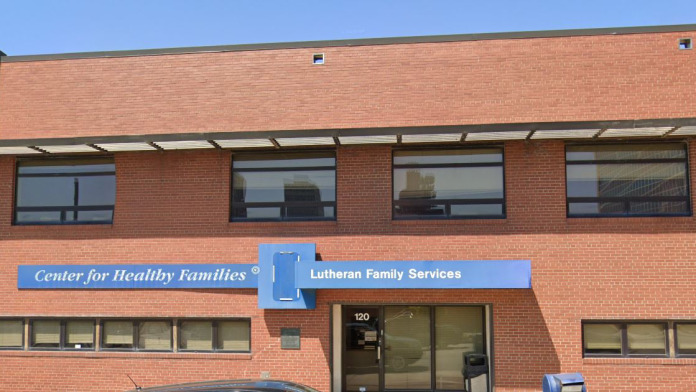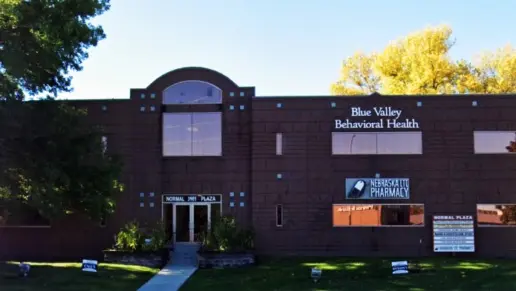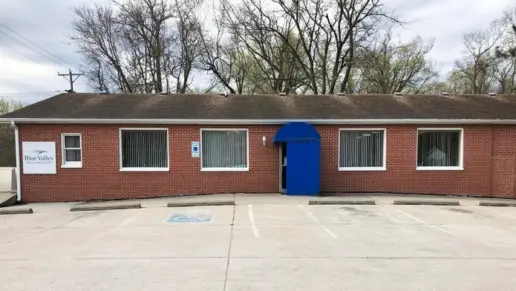About Lutheran Family Services
Lutheran Family Services, located in Omaha, Nebraska, provides addiction treatment to men and women seeking recovery. They also offer mental health treatment, behavioral health care, and dual diagnosis treatment.
Lutheran Family Services provides a person-centered approach to transformation. Clients are treated with dignity and respect and are asked to play an active role in their transformation. Services include an intensive outpatient program (IOP) and standard outpatient treatment.
Intensive Outpatient Program
The intensive outpatient program meets three days per week for three hours a time. The program lasts for six to eight weeks. Clients are encouraged to attend for up to an eight week period. Individual therapy, group therapy, family therapy, and couples counseling are provided.
Outpatient Treatment
The outpatient program is for individuals who only require treatment once per week to receive the level of care they need. Medication-assisted treatment, mental health counseling, and self-help groups are available.
Latest Reviews
Rehab Score
Gallery

Location
Other Forms of Payment
Self-pay involves paying for treatment out of your own pocket. You can use savings or credit, get a personal loan, or receive help from family and friends to fund your treatment. If you don't have insurance or your insurance plan doesn't cover a specific program, self-pay can help ensure you still get the care you need.
Private insurance refers to any kind of healthcare coverage that isn't from the state or federal government. This includes individual and family plans offered by an employer or purchased from the Insurance Marketplace. Every plan will have different requirements and out of pocket costs so be sure to get the full details before you start treatment.
Sliding scale payments are based on a client's income and family size. The goal is to make treatment affordable to everyone. By taking these factors into account, addiction recovery care providers help ensure that your treatment does not become a financial burden to you or your family, eliminating one barrier to care.
Medicaid is a state based program that helps lower-income individuals and families pay for healthcare. Medicaid covers addiction treatment so those enrolled can use their coverage to pay for rehab. When a program accepts Medicaid the client often pays very little or nothing out of their own pocket.
Medicare is a federal program that provides health insurance for those 65 and older. It also serves people under 65 with chronic and disabling health challenges. To use Medicare for addiction treatment you need to find a program that accepts Medicare and is in network with your plan. Out of pocket costs and preauthorization requirements vary, so always check with your provider.
Addiction Treatments
Levels of Care
Treatments
The goal of treatment for alcoholism is abstinence. Those with poor social support, poor motivation, or psychiatric disorders tend to relapse within a few years of treatment. For these people, success is measured by longer periods of abstinence, reduced use of alcohol, better health, and improved social functioning. Recovery and Maintenance are usually based on 12 step programs and AA meetings.
During drug rehab in Nebraska, you'll participate in therapies that address the many issues that contribute to addiction. Treatment includes physical, mental, emotional, and relational aspects. These methods provide the tools you need to achieve long-term recovery.
Many of those suffering from addiction also suffer from mental or emotional illnesses like schizophrenia, bipolar disorder, depression, or anxiety disorders. Rehab and other substance abuse facilities treating those with a dual diagnosis or co-occurring disorder administer psychiatric treatment to address the person's mental health issue in addition to drug and alcohol rehabilitation.
A combined mental health and substance abuse rehab has the staff and resources available to handle individuals with both mental health and substance abuse issues. It can be challenging to determine where a specific symptom stems from (a mental health issue or an issue related to substance abuse), so mental health and substance abuse professionals are helpful in detangling symptoms and keeping treatment on track.
Opioid rehabs specialize in supporting those recovering from opioid addiction. They treat those suffering from addiction to illegal opioids like heroin, as well as prescription drugs like oxycodone. These centers typically combine both physical as well as mental and emotional support to help stop addiction. Physical support often includes medical detox and subsequent medical support (including medication), and mental support includes in-depth therapy to address the underlying causes of addiction.
Programs



Clinical Services
Cognitive Behavioral Therapy (CBT) is a therapy modality that focuses on the relationship between one's thoughts, feelings, and behaviors. It is used to establish and allow for healthy responses to thoughts and feelings (instead of unhealthy responses, like using drugs or alcohol). CBT has been proven effective for recovering addicts of all kinds, and is used to strengthen a patient's own self-awareness and ability to self-regulate. CBT allows individuals to monitor their own emotional state, become more adept at communicating with others, and manage stress without needing to engage in substance abuse.
Eye Movement Desensitization and Reprocessing (EMDR) is an extensively-researched, integrative psychotherapy proven effective for trauma treatment. By directly affecting how the brain processes information, EMDR helps people see traumatic memories in new, less distressing ways. Adjunctive therapy allows the client to retain their primary therapist and receive EMDR treatment from LFS. An EMDR-trained therapist works with the client for six to eight sessions specifically for EMDR therapy. After completion of EMDR therapy the client returns to their primary therapist.
Research clearly demonstrates that recovery is far more successful and sustainable when loved ones like family members participate in rehab and substance abuse treatment. Genetic factors may be at play when it comes to drug and alcohol addiction, as well as mental health issues. Family dynamics often play a critical role in addiction triggers, and if properly educated, family members can be a strong source of support when it comes to rehabilitation.
Group therapy is any therapeutic work that happens in a group (not one-on-one). There are a number of different group therapy modalities, including support groups, experiential therapy, psycho-education, and more. Group therapy involves treatment as well as processing interaction between group members.
In individual therapy, a patient meets one-on-one with a trained psychologist or counselor. Therapy is a pivotal part of effective substance abuse treatment, as it often covers root causes of addiction, including challenges faced by the patient in their social, family, and work/school life.
Community Support Specialists provide assistance to individuals experiencing Severe and Persistent Mental Illness (SPMI). The goal is to help clients achieve self-sustaining independence by attaining stability, improving personal, community and vocational functioning, increasing residential stability and enhancing development of skills.
An evidence-based psychotherapy for children and adolescents (ages 3 to 18) with post-traumatic stress disorder (PTSD) and other difficulties related to traumatic life events. The goal of TF-CBT is to provide both the child and caregiver with the knowledge and skills to help them identify and cope with trauma-related emotions, thoughts and behaviors.
Amenities
-
Private Setting
Contact Information
120 S 24th Street
Suite 100
Omaha, NE 68102


